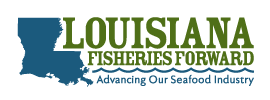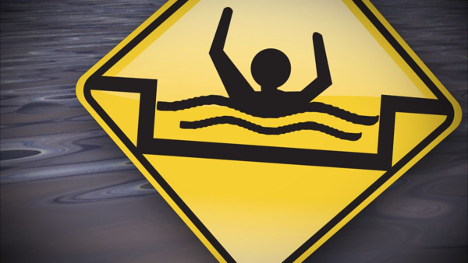From United States Coast Guard: Its 5:00 in the evening, you walk out to your back deck to take a look at your GPS, and as you go to sit down on your chair your feet come out from under you. The next thing you know you are in the water watching your boat sail away as you tread water. Sounds scary huh? Well, this was reality for Barry Lirette recently and thankfully he is with us today to tell his story.
After he fell overboard, Barry quickly realized he was not going to be able to catch the boat and his deck hand was fast asleep as the boat motored on. Having worked most of his life in the oil field, Barry relied on his water survival training and was ultimately able to make it to a small island. He had enough wherewithal to determine which way the current was moving and began swimming to the nearest point of land that was in line with the current.
This was quite a close call and by his own account he was at the point of exhaustion when he was finally able to touch bottom. Fortunately, water temperatures were still high when Barry fell overboard; if you were to add cold water into the equation the outcome would probably have been different. The fact is that falls overboard are the number one killer of commercial fishermen nationwide, and the number of deaths from falls overboard in the Gulf of Mexico exceed that of the waters surrounding Alaska. In the last decade there were 66 fatalities in the Gulf of Mexico, and in comparison, there were 63 in waters surrounding Alaska. You might be scratching your head wondering how we lost more fishermen from falls overboard than one of the most dynamic and unforgiving environments on earth. I know I have been. These statistics are sobering, but these unfortunate incidents are in the past and we need to focus on what we can do to prevent them in the future.
I’d be willing to bet most seasoned fishermen have had a close call themselves or at least know someone who has. It could literally happen to anyone, but there are a few common sense safety practices we can apply to greatly reduce your risk of becoming a statistic.
- First and foremost, if you’re going to be on deck alone at night wear a life jacket. I’m not talking a big bulky abandon ship Type-I life jacket, but something to keep you afloat. Along with your life jacket carry something to make some noise, like a whistle or small air horn, and a light. This is the number one precaution you can take!
- If there are other crewmen aboard make sure someone knows you will be on deck.
- If you are working alone, as many of our smaller skimmers do, trail a floating line with a float attached to it behind your boat. If the unthinkable happens and you do fall over, it will give you something to grab onto to get back to the boat. It would take an Olympic swimmer to catch the boat, but grabbing a line gives anyone a chance.
- If you have to go out onto your rigging or skimmer frames to fix something, first anchor up, or at the very least STOP. If you fall while underway the best case is you watch the boat sail away, worst case you end up in the tail of your own net.
In the colder months these, and any other precaution you can think of, are that much more important. We live in a generally warm climate and our boats aren’t required to have the cold weather survival gear that a boat in the Bering Sea has. But we all know it gets brutally cold down here at times and let’s face facts – hypothermia is a cold hearted killer.
In addition to these practices, there is some commercially available equipment that can significantly increase your chance of survival if you find yourself in the water, such as:
- Personal Locater Beacon (PLB) – PLB’s operate the same way a larger EPIRB does but are small enough to fit into your pocket. Once activated, Coast Guard rescue personnel are notified via a satellite system.
- Remote wireless engine kill switches – there are several versions available commercially that are geared toward outboard motors with an ignition system.
Lastly, in Louisiana you have three Coast Guard Commercial Fishing Vessel Safety Examiners and all of our contact info is below. Our job is to help you ensure your vessel has the safety gear required by law, through a voluntary dockside exam that carries no penalties. For questions regarding the safety practices mentioned above or to schedule a free safety exam, contact one of the Safety Examiners listed below.
Terrebonne and Lafourche Parishes and Grand Isle – George Rau at 985-397-3276
Morgan City to Intracoastal City- Harry March, 800-884-8724
New Orleans (Lafitte, Lake Pontchartrain, St Bernard Parish, Plaquemines Parish) – Pablo Callejas, 504-232-7109Safety examiners from other areas can be located at http://fishsafewest.info/PDFs/CFVSContactList.pdf.





